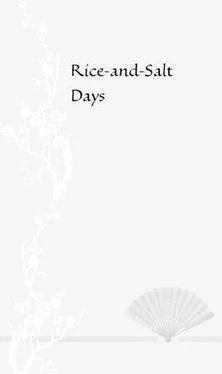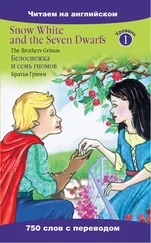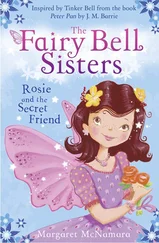Lisa See - Snow Flower And The Secret Fan
Здесь есть возможность читать онлайн «Lisa See - Snow Flower And The Secret Fan» весь текст электронной книги совершенно бесплатно (целиком полную версию без сокращений). В некоторых случаях можно слушать аудио, скачать через торрент в формате fb2 и присутствует краткое содержание. Жанр: Старинная литература, на английском языке. Описание произведения, (предисловие) а так же отзывы посетителей доступны на портале библиотеки ЛибКат.
- Название:Snow Flower And The Secret Fan
- Автор:
- Жанр:
- Год:неизвестен
- ISBN:нет данных
- Рейтинг книги:3 / 5. Голосов: 1
-
Избранное:Добавить в избранное
- Отзывы:
-
Ваша оценка:
- 60
- 1
- 2
- 3
- 4
- 5
Snow Flower And The Secret Fan: краткое содержание, описание и аннотация
Предлагаем к чтению аннотацию, описание, краткое содержание или предисловие (зависит от того, что написал сам автор книги «Snow Flower And The Secret Fan»). Если вы не нашли необходимую информацию о книге — напишите в комментариях, мы постараемся отыскать её.
Snow Flower And The Secret Fan — читать онлайн бесплатно полную книгу (весь текст) целиком
Ниже представлен текст книги, разбитый по страницам. Система сохранения места последней прочитанной страницы, позволяет с удобством читать онлайн бесплатно книгу «Snow Flower And The Secret Fan», без необходимости каждый раз заново искать на чём Вы остановились. Поставьте закладку, и сможете в любой момент перейти на страницу, на которой закончили чтение.
Интервал:
Закладка:
Snow Flower And The Secret Fanby Lisa See
IN THIS NOVEL, I HAVE FOLLOWED THE TRADITIONAL CHINESE style for rendering dates. The third year of Emperor Daoguang’s reign, when Lily was born, is 1823. The Taiping Rebellion started in 1851 and ended in 1864.
It is believed that nu shu— the secret-code writing used by women in a remote area of southern Hunan Province—developed a thousand years ago. It appears to be the only written language in the world to have been created by women exclusively for their own use.
Sitting Quietly
I AM WHAT THEY CALL IN OUR VILLAGE “ONE WHO HAS NOT yet died”—a widow, eighty years old. Without my husband, the days are long. I no longer care for the special foods that Peony and the others prepare for me. I no longer look forward to the happy events that settle under our roof so easily. Only the past interests me now. After all this time, I can finally say the things I couldn’t when I had to depend on my natal family to raise me or rely on my husband’s family to feed me. I have a whole life to tell; I have nothing left to lose and few to offend.
I am old enough to know only too well my good and bad qualities, which were often one and the same. For my entire life I longed for love. I knew it was not right for me—as a girl and later as a woman—to want or expect it, but I did, and this unjustified desire has been at the root of every problem I have experienced in my life. I dreamed that my mother would notice me and that she and the rest of my family would grow to love me. To win their affection, I was obedient—the ideal characteristic for someone of my sex—but I was too willing to do what they told me to do. Hoping they would show me even the most simple kindness, I tried to fulfill their expectations for me—to attain the smallest bound feet in the county—so I let my bones be broken and molded into a better shape.
When I knew I couldn’t suffer another moment of pain, and tears fell on my bloody bindings, my mother spoke softly into my ear, encouraging me to go one more hour, one more day, one more week, reminding me of the rewards I would have if I carried on a little longer. In this way, she taught me how to endure—not just the physical trials of footbinding and childbearing but the more torturous pain of the heart, mind, and soul. She was also pointing out my defects and teaching me how to use them to my benefit. In our country, we call this type of mother love teng ai. My son has told me that in men’s writing it is composed of two characters. The first means pain; the second means love. That is a mother’s love.
The binding altered not only my feet but my whole character, and in a strange way I feel as though that process continued throughout my life, changing me from a yielding child to a determined girl, then from a young woman who would follow without question whatever her in-laws demanded of her to the highest-ranked woman in the county who enforced strict village rules and customs. By the time I was forty, the rigidity of my footbinding had moved from my golden lilies to my heart, which held on to injustices and grievances so strongly that I could no longer forgive those I loved and who loved me.
My only rebellion came in the form of nu shu, our women’s secret writing. My first break with tradition came when Snow Flower—my laotong, my “old same,” my secret-writing partner—sent me the fan that sits here on my table, and then again after I met her. But apart from who I was with Snow Flower, I was resolved to be an honorable wife, a praiseworthy daughter-in-law, and a scrupulous mother. In bad times my heart was as strong as jade. I had the hidden might to withstand tragedies and sorrows. But here I am—a widow, sitting quietly as tradition dictates—and I understand that I was blind for too many years.
Except for three terrible months in the fifth year of Emperor Xianfeng’s reign, I have spent my life in upstairs women’s rooms. Yes, I have gone to the temple, traveled back to my natal home, even visited with Snow Flower, but I know little about the outer realm. I have heard men speak of taxes, drought, and uprisings, but these subjects are far removed from my life. What I know is embroidery, weaving, cooking, my husband’s family, my children, my grandchildren, my great-grandchildren, and nu shu. My life course has been a normal one—daughter days, hair-pinning days, rice-and-salt days, and now sitting quietly.
So here I am alone with my thoughts and this fan before me. When I pick it up, it’s strange how light it feels in my hands, for it records so much joy and so much grief. I open it quickly, and the sound each fold makes as it spreads reminds me of a fluttering heart. Memories tear across my eyes. These last forty years, I have read it so many times that it is memorized like a childhood song.
I remember the day the intermediary handed it to me. My fingers trembled as I opened the folds. Back then a simple garland of leaves adorned the upper edge and only one message trickled down the first fold. At that time I didn’t know many characters in nu shu, so my aunt read the words. “I understand there is a girl of good character and women’s learning in your home. You and I are of the same year and the same day. Could we not be sames together?” I look now at the gentle wisps that compose those lines and see not only the girl that Snow Flower was but the woman she would become—persevering, straightforward, outward-looking.
My eyes graze along the other folds and I see our optimism, our joy, our mutual admiration, our promises to each other. I see how that simple garland grew to be an elaborate design of interwoven snow blossoms and lilies to symbolize our two lives together as a pair of laotong, old sames. I see the moon in the upper right-hand corner shining down on us. We were to be like long vines with entwined roots, like trees that stand a thousand years, like a pair of mandarin ducks mated for life. On one fold, Snow Flower wrote, We of good affection shall never sever our bond. But on another fold I see the misunderstandings, the broken trust, and the final shutting of the door. For me, love was such a precious possession that I couldn’t share it with anyone else, and it eventually cut me away from the one person who was my same.
I am still learning about love. I thought I understood it—not just mother love but the love for one’s parents, for one’s husband, and for one’s laotong. I’ve experienced the other types of love—pity love, respectful love, and gratitude love. But looking at our secret fan with its messages written between Snow Flower and me over many years, I see that I didn’t value the most important love—deep-heart love.
These last years I have copied down many autobiographies for women who never learned nu shu. I have listened to every sadness and complaint, every injustice and tragedy. I have chronicled the miserable lives of the poorly fated. I have heard it all and written it all down. But if I know much about women’s stories, then I know almost nothing about men’s, except that they usually involve a farmer fighting against the elements, a soldier in battle, or a lone man on an interior quest. Looking at my own life, I see it draws from the stories of women and men. I am a lowly woman with the usual complaints, but inside I also waged something like a man’s battle between my true nature and the person I should have been.
I am writing these pages for those who reside in the afterworld. Peony, my grandson’s wife, has promised to make sure that they are burned at my death, so my story will reach them before my spirit does. Let my words explain my actions to my ancestors, to my husband, but most of all to Snow Flower, before I greet them again.
Читать дальшеИнтервал:
Закладка:
Похожие книги на «Snow Flower And The Secret Fan»
Представляем Вашему вниманию похожие книги на «Snow Flower And The Secret Fan» списком для выбора. Мы отобрали схожую по названию и смыслу литературу в надежде предоставить читателям больше вариантов отыскать новые, интересные, ещё непрочитанные произведения.
Обсуждение, отзывы о книге «Snow Flower And The Secret Fan» и просто собственные мнения читателей. Оставьте ваши комментарии, напишите, что Вы думаете о произведении, его смысле или главных героях. Укажите что конкретно понравилось, а что нет, и почему Вы так считаете.












